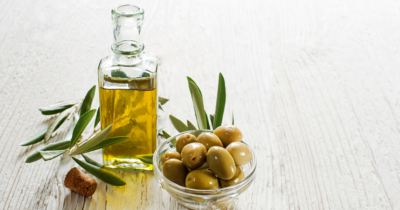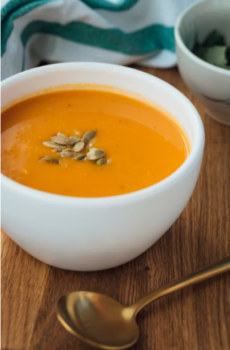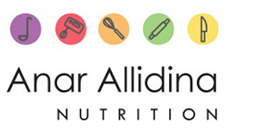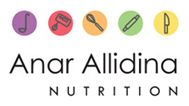
15 Feb The #1 Kitchen Staple For Heart Health!
February is Heart Month, a time to bring attention to the importance of cardiovascular health, and what we can do to reduce our risk of cardiovascular disease.
Heart disease affects approximately 2.4 million Canadian adults, and is the second leading cause of death in Canada.
Heart Disease and Insulin Resistance
Heart health is extremely important for everyone, especially for those with insulin resistance. You see, insulin resistance is a condition where your body has a hard time using insulin effectively, which can lead to high blood sugar levels. Over time, this can increase your risk of developing other health problems, such as type 2 diabetes, high blood pressure, and heart disease. When you have high blood sugar levels, it can also increase your risk for heart disease. This is because high blood sugar levels can damage your blood vessels, making them more prone to narrowing or blockages. This can lead to problems like heart attacks or strokes.
That’s why taking care of your heart is so important! A healthy heart means a healthy body, and it can help you feel your best. There are many things you can do to support heart health, such as
- Eating a balanced diet
- Getting regular exercise
- Quitting smoking
- Managing stress
- Seeing your doctor for regular check-ups.
By taking these steps, you can help keep your heart strong and healthy, and reduce your risk for heart-related problems.
#1 Kitchen Staple for Heart Health

There are a variety of heart-healthy foods to choose from. If I had to choose 1 food item to include daily to support your heart it would be olive oil.
Health Benefits of Olive Oil
Olive oil is considered to be good for heart health because of its high content of monounsaturated fatty acids (MUFAs) and polyphenols.
MUFAs are a type of healthy fat that has been shown to reduce the risk of heart disease. They help to lower cholesterol levels and reduce inflammation in the body, both of which are important factors in maintaining heart health.
Additionally, olive oil is rich in antioxidants such as polyphenols, which help to protect the heart and blood vessels from damage caused by free radicals.
Cooking With Olive Oil
When it comes to cooking with olive oil, it is important to be mindful of the temperature. Olive oil has a low smoke point, meaning that it starts to break down and release harmful compounds when it is heated to high temperatures. This can lead to the formation of free radicals, which can contribute to heart disease.
The recommended safe temperature for cooking with olive oil is around 320-375°F. This temperature range is sufficient for most cooking methods, including sautéing, pan-frying, and baking. If you need to cook at higher temperatures, such as for deep frying, it is best to use a high-heat oil such as avocado oil, which has a smoke point of around 500°F.
Another reason why I love olive oil is that olive oil has a distinct, mild flavour that can enhance the taste of many dishes. It can be used as a finishing oil to drizzle over vegetables, pasta, or bread, or as a base for salad dressings and marinades. Olive oil is also very versatile it can be used in many different types of cuisine, from Mediterranean to Asian, and can be incorporated into a wide range of recipes, from savoury dishes to sweet treats.
To maximize the health benefits of olive oil, it is recommended to use it in moderation and cook with it at a temperature that is safe and will not cause it to break down and release harmful compounds.
Recipes that feature olive oil:

https://anarallidina.com/lentil-soup-for-blood-sugar-balance/




Sorry, the comment form is closed at this time.